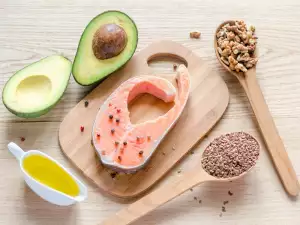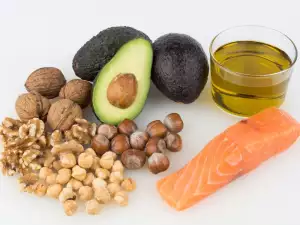Saturated fats are fats consisting of triglycerides, containing only saturated fatty acids. Saturated fats are a serious threat to the body and health.
Fats are especially important for the life of every individual cell. They play a key role for the immune system, in the synthesis of hormones that regulate heart rate, blood pressure, the nervous system, blood clotting.
Here's where we need to make the distinction between good and bad fats.
The group of good fats contains omega-3 fatty acids, primarily found in fish and omega-6 fatty acids, found in highest abundance in olives, walnuts, seeds and oils made from them, as well as in vegetables and cereals. Unsaturated fats maintain the elasticity and strength of the blood vessels and raise good cholesterol levels.
Bad fats, or saturated fats, hide a series of health risks and are primarily found in foods of animal origin.

Sources of Saturated Fats
Animal products, including meat, contain the greatest amount of saturated fats. Red meat especially, is one of the biggest sources of these harmful fats. Bird meat contains less saturated fats than the meat of quadruped animals.

Out of vegetable oils, coconut and palm oils are the biggest sources of saturated fats. Cream, full fat milk, butter and pork lard all contain high amounts of saturated fats.
Dangers of Saturated Fats
Saturated fats are a leading cause of increased levels of bad cholesterol in the blood and an increased risk of coronary artery disease.

Foods with saturated fats are the enemies of any diet and need to be limited as much as possible in meals. Large quantities of saturated fats can lead to obesity, in turn leading to further health complications later on.
The most immediate danger is the development of cardiovascular diseases, which seriously raise the risk of heart attack and stroke. These diseases have for decades on end been responsible for premature death.
Daily Dose of Saturated Fats

According to nutritionists, no more than 11% of the energy produced in our body should come from saturated fats. This basically means that the average daily amount of it for women is 0.7 oz (20 g) and for men - about 1 oz (30 g).
Limiting Saturated Fats
The most effective rules are related to changes that are seemingly insignificant at first glance but have a serious effect. First off, substitute butter in your food with oil; not eating the skin of chicken meat lowers the saturated fats you will take in by 1/3.
Reducing the fats in it will be even more noticeable if you choose meat without any visible fat on it. Avoid milk sauces and pick out products low in fat.
Always read the labels on the products you're buying and if you feel like eating something sweet, eat dark chocolate or dried fruits.
When cooking meat, rely more on steamed, rather than fried recipes, or pick boiling or oven-baked (as a last resort) ones. Choose foods rich in omega-3 and omega-6 unsaturated fatty acids.
Overconsumption of vegetable oils is owed to several key factors. Firstly, a lot of people still do not recognize the difference between saturated and unsaturated fats.
Secondly, modern man moves less and therefore has less need of consuming fats. It's important to note that despite the tendency to reduce saturated fats in plant products, they still contain excessively high amounts of them.















Comments